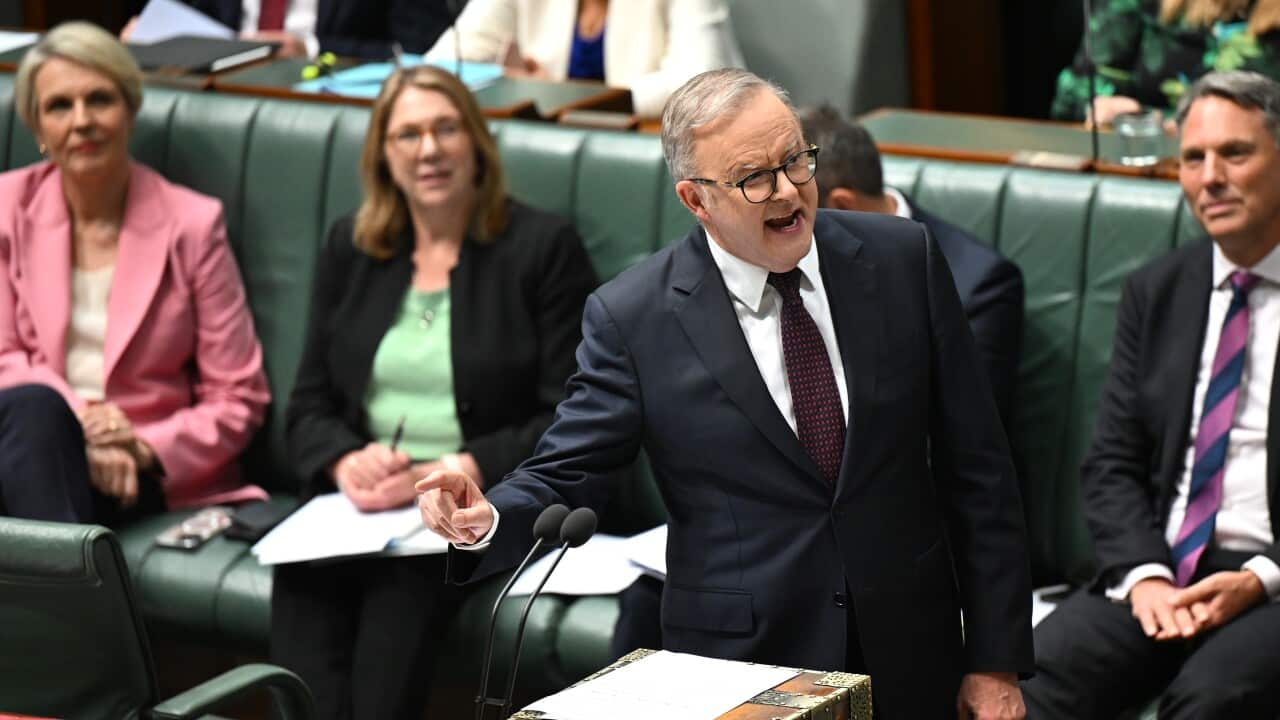Prime Minister Anthony Albanese has told Australians the government has “your back” as it passed several significant reforms in the final parliamentary sitting week of the year.
Albanese secured a last-minute deal with the Greens on Thursday to help Labor “guillotine” through dozens of bills in the Senate.
Looking elated, the prime minister credited Finance Minister Katy Gallagher with helping pass 45 pieces of legislation in the final parliamentary fortnight.
“We know the real value of what happens in here is the difference that it makes to people’s lives out there,” he said at a press conference on Friday morning.
Albanese said the government had focused on “dealing with day-to-day pressures” such as cost of living while keeping an eye on a “big reform agenda” from changes to the Reserve Bank of Australia (RBA) to cracking down on social media for young people.
In a flurry of action, the Senate passed a “guillotine” motion to help it pass key legislation. Here’s what the government achieved this week as a result:
What is a guillotine motion?
A guillotine motion, which allows bills to be voted on with minimal or no debate, passed the Senate with support from the Greens and several crossbenchers.
In an extraordinary day for parliament, the first guillotine came into effect on Thursday evening, suspending debate for 30 bills and amendments.
All legislation, except the social media ban, for which there was an hour of debate carved out, proceeded under these conditions, with Senate sitting past 11pm.
Independent senator Jacqui Lambie failed to block the motion after arguing that the government was rushing through legislation without proper debate.
The House of Representatives returned first thing Friday morning to finalise the bills.
What bills passed the Senate this week?
A key win for the Albanese government is the , which plans to invest in local manufacturing as the country transitions to net zero emissions.
Greens leader Adam Bandt met with Albanese on Thursday morning, resulting in a guarantee that no coal, oil and gas would be part of the Future Made in Australia bill.
The agreement also included $500 million for social housing upgrades in exchange for the minor party’s support on 27 bills on the last day that the Senate sits.
The Senate also passed , including the Help to Buy bill — a shared equity program that will allow 10,000 first-home buyers each year to buy a house with a contribution from the government.
The government agreed to Greens amendments to the Build to Rent legislation before it passed, increasing the minimum lease term that must be offered to tenants under the scheme from three to five years.
Greens leader Adam Bandt said the party had worked hard to ensure “Australia should not be a future for more coal and gas”. Source: AAP / Mick Tsikas
As well as winning support from the Greens, the Coalition voted with Labor to pass three controversial migration bills.
It supported the government’s legislation to ban people under 16 from using social media. That legislation passed parliament late on Thursday and will come into effect in 12 months’ time.
The changes to social media will affect platforms including Tiktok, Facebook, Snapchat, Instagram, X and Reddit but exclude messaging apps Facebook Messenger and Whatsapp.
Labor’s plan to combine a trio of migration policies — helping it deport thousands of non-citizens to third countries, impose travel bans and reverse protections for refugees — described by advocates as “brutal” and “draconian”, will now be law.
A last-minute deal to overhaul the RBA was also secured, splitting its board into two bodies, a monetary policy committee and a board that manages the day-to-day running of the central bank.
The government retained its right for the treasurer to override a rate decision, as set out under Section 11 of the RBA Act, after extensive public debate over the issue.
Early childhood educators will receive a 10 per cent pay rise, over $3 billion of HECS debt will wiped under indexation changes and public schools will get a $16 billion federal funding boost to funding as a result of the week’s agenda.
The suite of bills includes changes to superannuation, anti-money laundering laws that would force lawyers, accountants and real estate agents to report suspicious transactions and aged care reform.
What major reforms have been pushed back to next year?
After ending the parliamentary year on a high, several reforms linger and remain uncertain to pass, depending on whether another sitting period will be crammed into the new year before an election is called.
Labor was unable to secure a deal with the Coalition over irrespective of whether they are donating to multiple candidates.
Independents criticised the government for attempting to “rig the rules”, limiting donations to $20,000 per candidate. It includes a $800,000 cap per seat for any candidate or $90 million nationwide for political parties.
, as recommended by the late Labor MP Peta Murphy’s inquiry two years ago, is also controversial.
The proposal had rare bipartisan support in 2022 and called for a blanket ban on gambling advertising, however, a watered-down proposal has circulated this year which would set a limit of two gambling ads per hour on each channel until 10pm.
Advocates have argued that the government is prioritising revenue for media companies over the health of Australians, with 1.7 million people directly or indirectly impacted by gambling harm.
Another issue kicked into the new year includes the government’s nature-positive proposal.
Introduced to parliament in March, the laws include the creation of a federal body called Environment Protection Australia which would enforce decisions made under the new environmental laws.

